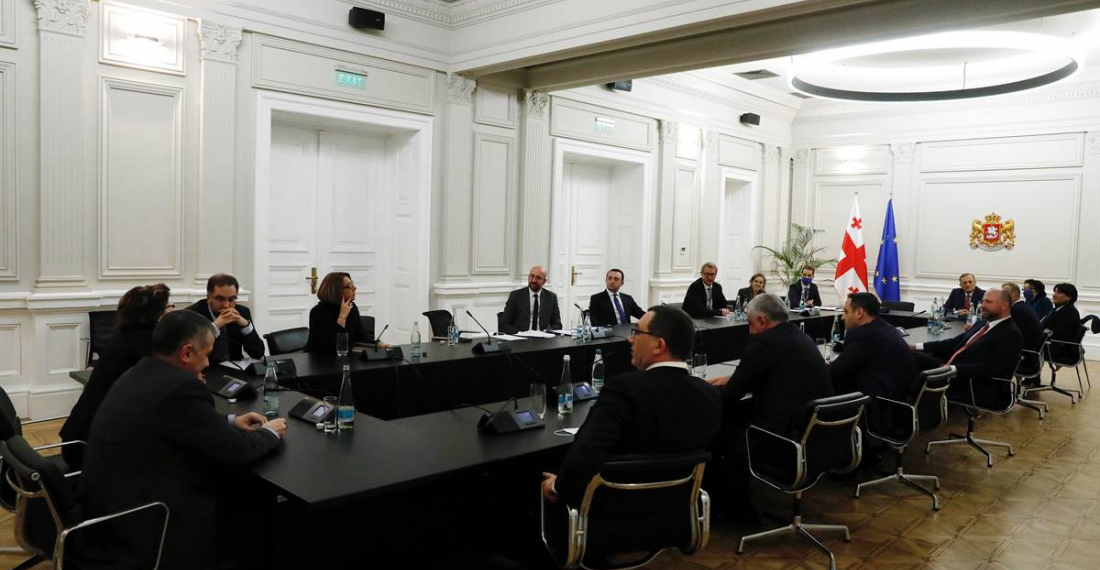The President of the European Council, Charles Michel, mediated talks over the political crisis in Georgia yesterday (1 March) evening. The meeting between the governing party and the country’s opposition parties was called after Michel held separate meetings with each earlier in the day.
Georgia has been in a political crisis since October last year when opposition parties alleged that the parliamentary elections had been rigged, boycotting parliament. The crisis further erupted last Tuesday (23 February) when Nika Melia, the leader of the largest opposition party, the United National Movement (UNM), was arrested for inciting violence during anti-government protests in 2019 – charges that his supporters allege are politically motivated. In advance of the arrest, the former Georgian prime minister, Giorgi Gakharia, stepped down citing that he “could not reach a common understanding on this matter with [his] team” and expressing concern that the arrest of Melia would lead to further polarisation in his country. He was replaced by Irakli Garibashvili, who justified the arrest, stating, “Melia is guilty … everyone in the country, no matter to their taste and political views, must obey the law”. In response, hundreds of opposition supporters took to the streets last week, demanding Melia’s release and early elections.
Whilst Michel’s negotiations – including Garibashvili, and representatives from the UNM and other opposition parties – did not result in an clear solution to the crisis, the European Council President stated, “We had the opportunity to listen to each other. And we understand that there are many difficult topics that need to be tackled by the political actors.”
He added:
“… it means that when I asked the clear question to all the participants: is there the political will to strengthen the political dialogue in order to find solutions together? The answer was clearly yes. These are good steps, important step, and we continue to support all the positive efforts.”
The European Council President noted that in two weeks, they would have the opportunity to assess the progress made in the framework of the Association Council with Georgia in Brussels.
Garibashvili has confirmed that the discussions "will continue" so that they can “work in a unified parliament”. He added, however, "Our principled position on early elections is unchanged, this is a red line, an issue that is not being discussed, and I noted at this meeting that there is no legitimate basis for demanding early elections in the country”.
Despite the talks, tensions have continued today with the opposition leaders claiming that their supporters were arrested outside the parliament before protests had even started. The prime minister today referred to the protests as “anti-state and illegal destructive actions that do not serve either this format or the interests of the dialogue we started yesterday.”







